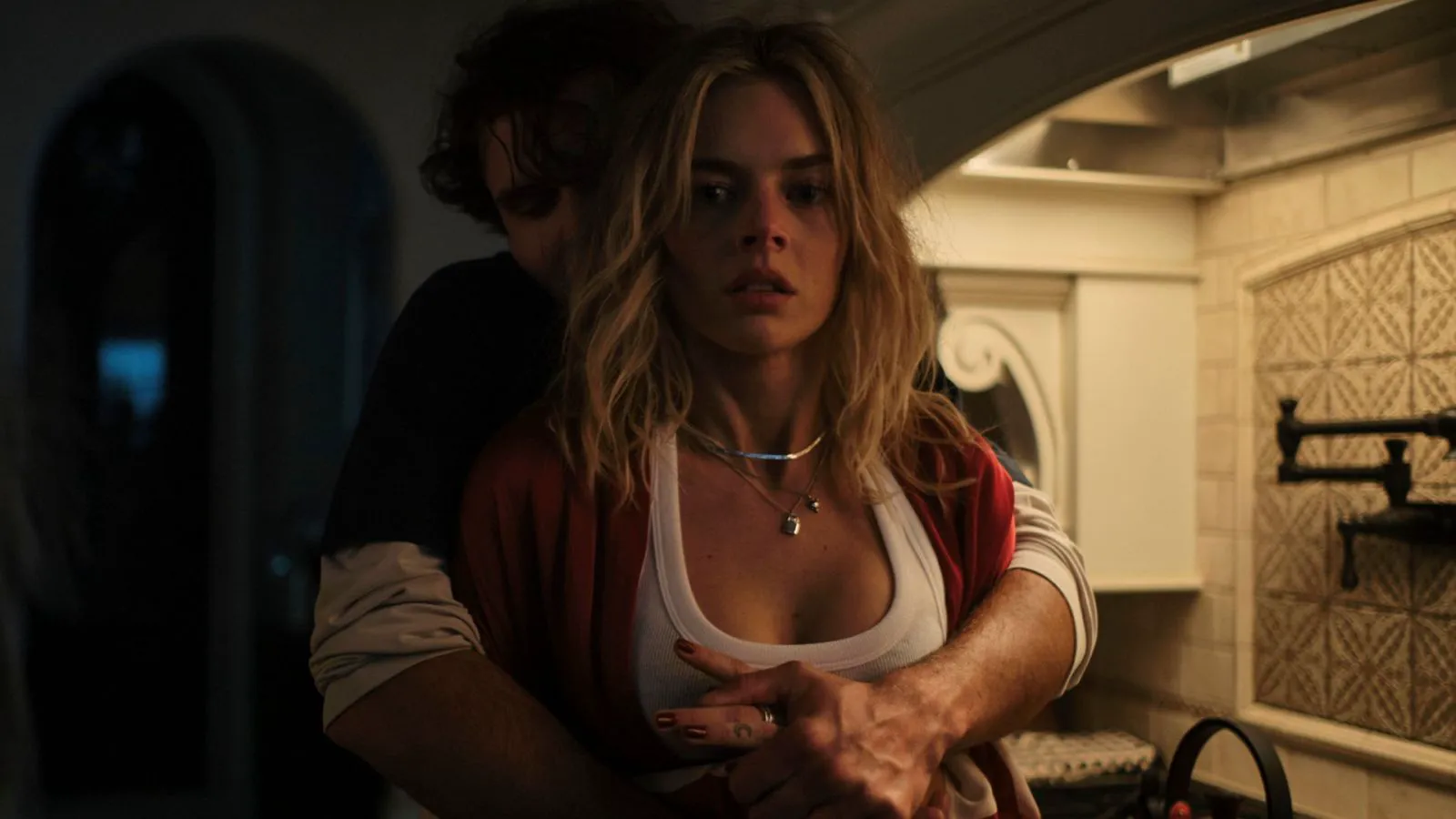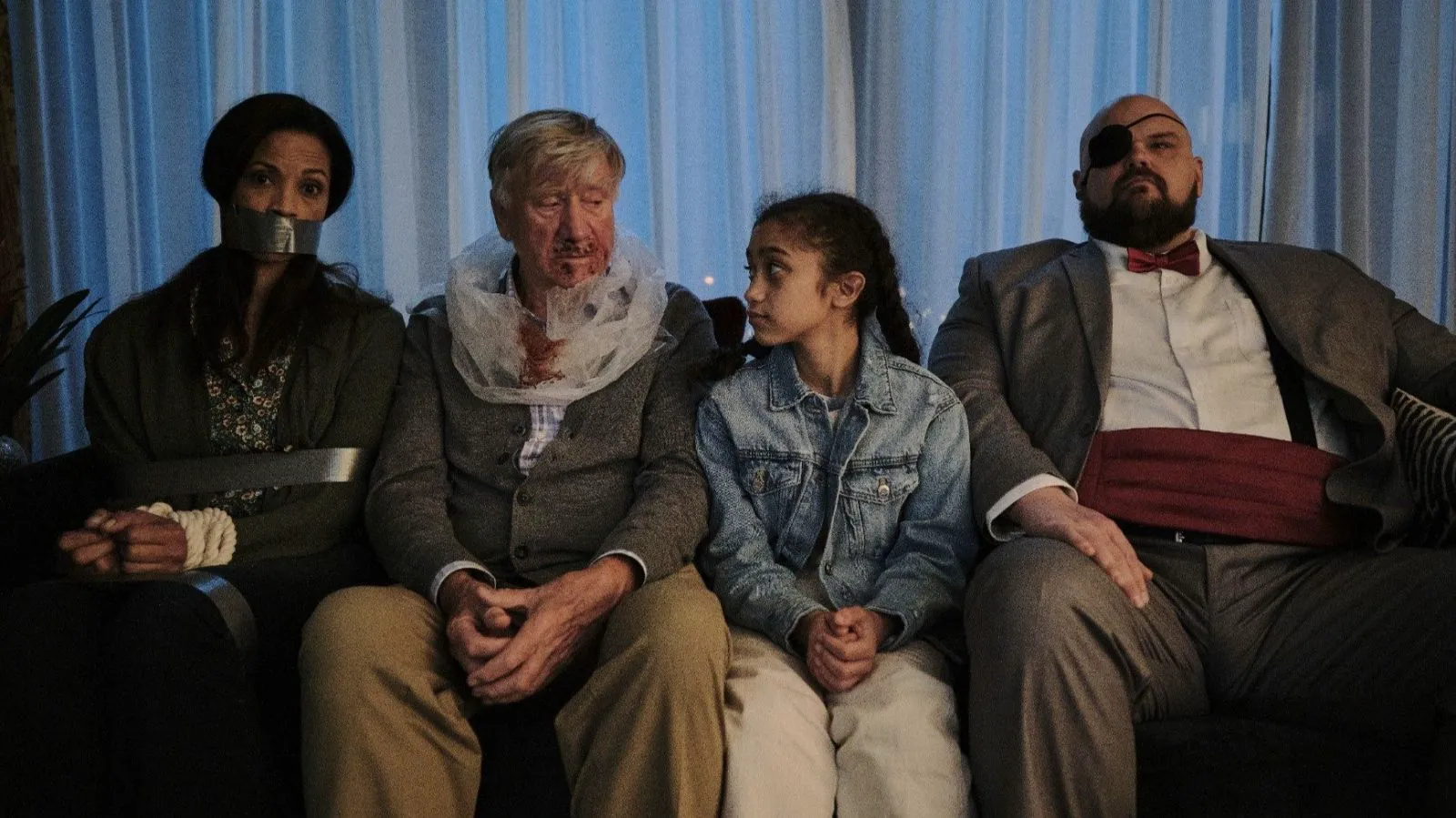The toxic and co-dependent relationship between fandoms and stars is a theme that, on the one hand, is inexhaustible, and on the other, often falls into repetition. Earlier this year, Sundance and then Berlinale screened “Lurker,” an ironic dramedy about a fan who becomes a best friend through blackmail and deception. While satire and black comedies dissect morals, horror films in bloody hues draw a line where sympathy for a creative entity turns into blind adoration, and obsession takes the form of stalking. In the 1980s, Annie, played by Kathy Bates in Rob Reiner’s “Misery,” became the avatar of all devoted female fans. In the 2020s, a new candidate emerges for the role of the creepiest fan, Paul Duerksen (Ray Nicholson) – a psychopath who hopes she’ll say “I do,” rather than seeing his less-than-elegant courtship end in a beautiful church ceremony.

Samara Weaving as Sophie in a still from “Assassination Nation”
Sophie (Samara Weaving) is a pop star, perhaps not of planetary scale, but posters with her face hang all over the city, a lovely mansion in the hills is guarded by a conscientious security guard (Eric Dane), and after concerts, she’s greeted at home not only by security but also by her beloved – NBA player Rod (Jimmy Fails). Paul is a delusional fan who, after a failed attempt, ends up in a mental institution. However, determined to reunite with his beloved, he escapes from the medical facility, acquires a support group (Alba Baptista and Patrick Cox), and sets off to meet his destined one – because it’s fate! Or is it?

Patrick Cox as G.H. in a still from “Assassination Nation”
Samara Weaving: Scream Queen
Reputation precedes her: after “The Babysitter” and “Ready or Not,” Samara Weaving has become one of the leading scream queens in the film industry (alongside Mia Goth and Jenna Ortega). The actress continues to stick close to the horror genre that made her famous. In the continuation of the “Scream” reboot, Weaving got a bright opening scene, and in “Azrael,” the actress carried all the gaps in the drama on her own rage and charisma. “Assassination Nation” promised to be a return to compact survival thrillers within four walls – bloody, spirited, and angry, perhaps even doubly so. After all, the director is Jimmy Warden – the screenwriter of “The Babysitter 2” and “Cocaine Bear,” and also Samara’s husband. On the other side of the last girl’s sanity is another promising actor: Ray – Jack Nicholson’s son, a nepo baby who shamelessly replicates the diabolical energy of his famous father – for example, in “Smile 2.” All the introductions suggested a not-too-thoughtful but audacious slasher about a star who fights off fanatical love with her feet, hands, and baseball bats.

Ray Nicholson as Paul in a still from “Assassination Nation”
“Assassination Nation”: A Missed Opportunity
Alas, this disposable evening entertainment suffers primarily from a disjointed rhythm, which ruins the charming idea. The dynamics of a cat-and-mouse game, multiplied by the actors’ performances, are more than half the success of battles in a confined space. Warden, however, focuses on expanding the story, taking Sophie behind her responsible security guard’s back and making Paul just one of a gang of invaders, rather than a decisive lone maniac. An overly detailed exposition and the addition of not fully developed script nuances for the supporting characters only drag out the inevitable bloodbath, which should demonstrate who is not a match for whom. Samara Weaving’s character is stuck somewhere between a “damsel in distress” who awaits the protective gesture of a guard and a determined survivor capable of saving herself without outside help.
Final Thoughts
“Assassination Nation” could have been a successful “B-movie” with a scathing commentary on stalking and the fantasies of fans that will never come true. But the optics are lost in the transitions from pursuer to victim and back, and the genre jokes are drowned not in blood and fight choreography, but in script branches that only reduce the level of adrenaline on the screen. It seems that Jimmy Warden is not afraid to be silly, and therefore adds sudden musical numbers and happy visions of a shared future. But, on the other hand, by the finale, the level of madness does not lead to an absurd catharsis, but simply reminds us once again that you can’t force love, and mental disorders should be treated with medication, not mutual affection.